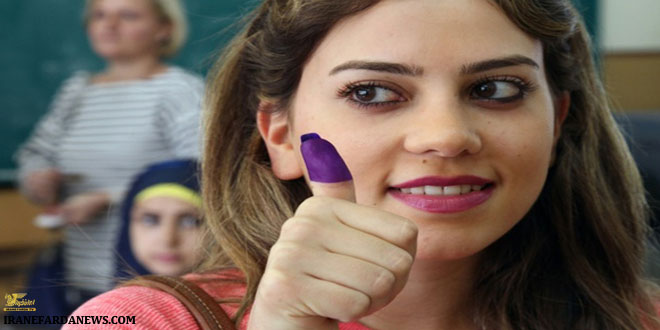
by:Mohamad Kawas
Scenes from municipal elections demonstrate absurdity of Lebanon’s electoral stagnation.
Lebanon’s municipal elections represent a unique opportunity to glean a practical reading of the country’s political situation at a time when Lebanon remains without a president and parliamentary elections are on hold.
Political discourse in Lebanon is focused on a variety of domestic and regional issues, not least the issue of sovereignty, Hezbollah’s arms and the Syrian crisis as well as regional tensions between Saudi Arabia and Iran.
Despite, or perhaps because of, intense political manoeuvring, rival Lebanese parliamentary blocs have been unable to agree on a president. If municipal elections demonstrate one thing clearly it is that Lebanon does possess the security and logistical capabilities to have elections, even if only at relatively lower levels.
The lack of parliamentary elections, which were supposed to be in 2014 but cannot take place until a new president is installed, is not due to technical or logistical reasons but the absence of collective political decision-making and a dangerous parliamentary “logjam”.
Elections for municipal councils are traditionally the least important polls in Lebanon, at least to political observers. These elections, like parliamentary ones, take place according to bloc voting but, unlike parliamentary elections, are not based on a confessional or sectarian quota system.
The scenes from the municipal elections demonstrate the absurdity of Lebanon’s electoral stagnation. With no other elections on the horizon, Lebanon’s major political parties exerted every effort to dominate and control local council elections.
On the eve of the elections, Hezbollah Secretary-General Sayyed Hassan Nasrallah warned against the role being played by “civil society” candidates — namely the blocs and candidates that would have traditionally dominated the municipal elections, which would have been largely been ignored by Hezbollah and others.
Lebanon’s major political parties need the elections to confirm their popular influence, despite the emergence of new blocs made up of people fed up with the parliamentary and government paralysis. Hezbollah, which is fighting a battle in Syria, thus finds itself fighting an electoral battle in Lebanon. Political parties are doing everything in their power to ensure that electoral results are not left to chance.
One bloc that sought to fight back against the intervention of major political parties in the municipal elections was the grass-roots Beirut Madinati list. It was ultimately defeated by the Beirutis’ List, which is backed by former prime minister Saad Hariri and the Future Movement, part of the March 14 alliance.
The first stage of the elections, which encompass Beirut and Bekaa, represented an important test for Hariri, who personally campaigned in the Lebanese capital on behalf of the Beirutis’ List. Its victory confirms his leadership of the Future Movement after years of exile abroad and his popularity in Beirut, which will be essential in the upcoming period of Lebanese politics.
The municipal elections demonstrated the degeneration of the trans-sectarian alliances that had typified the rival March 8 and March 14 alliances since 2005. Instead, Lebanon has witnessed the rise of sectarian blocs; a Christian coalition including Michel Aoun’s Free Patriotic Movement and Samir Geagea’s Lebanese Forces — the Free Patriotic Movement is a member of the Hezbollah-led March 8 alliance while Lebanese Forces are part of the rival Hariri-led March 14 alliance.
This new Christian alliance, which could have a major impact on the election of a new president, appears credible at the grass-root level, despite occasional differences of opinion on local and domestic issues.
As for Lebanon’s Shia community, the alliance between Hezbollah and the Amal Movement continues to dominate Shia politics, whether at the municipal level or above.
It is clear that the electoral moods among Lebanon’s Muslim and Christian communities have diverged, and in some cases are at complete odds with each other, even within the same broader political alliance.
Municipal lists used sectarian policies to shore up votes, such as church bells in Zahle ringing to call Christians to vote against the “tyranny” of the Muslim voters in the Bekaa valley, traditionally dominated by the Catholics. This was a policy that succeeded, given the success of the Christian alliance there. While Shia candidates, backed by Hezbollah and Amal, also used sectarian language to secure seats in traditionally Shia-dominated areas such as Baalbek.
Lebanon’s municipal elections do not normally garner this level of engagement but, at a time when the country remains without a president and parliamentary elections are on hold, the local elections serve as an important indicator regarding the political mood in the country.
 khalijefars News, Blogs, Art and Community
khalijefars News, Blogs, Art and Community








